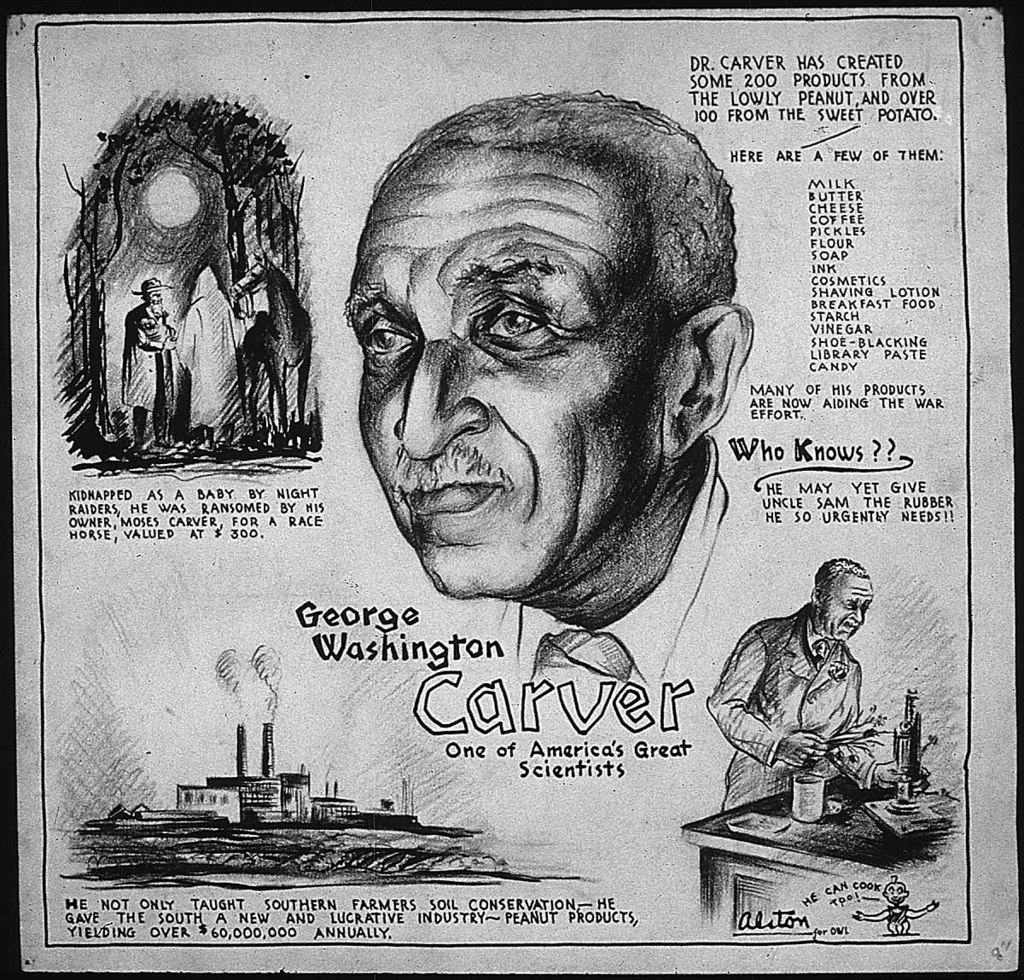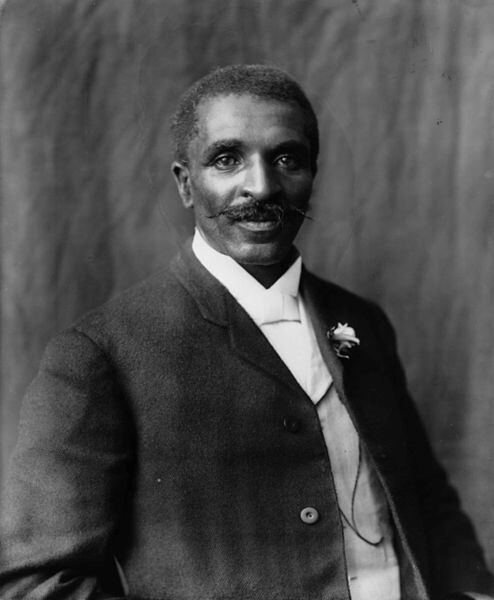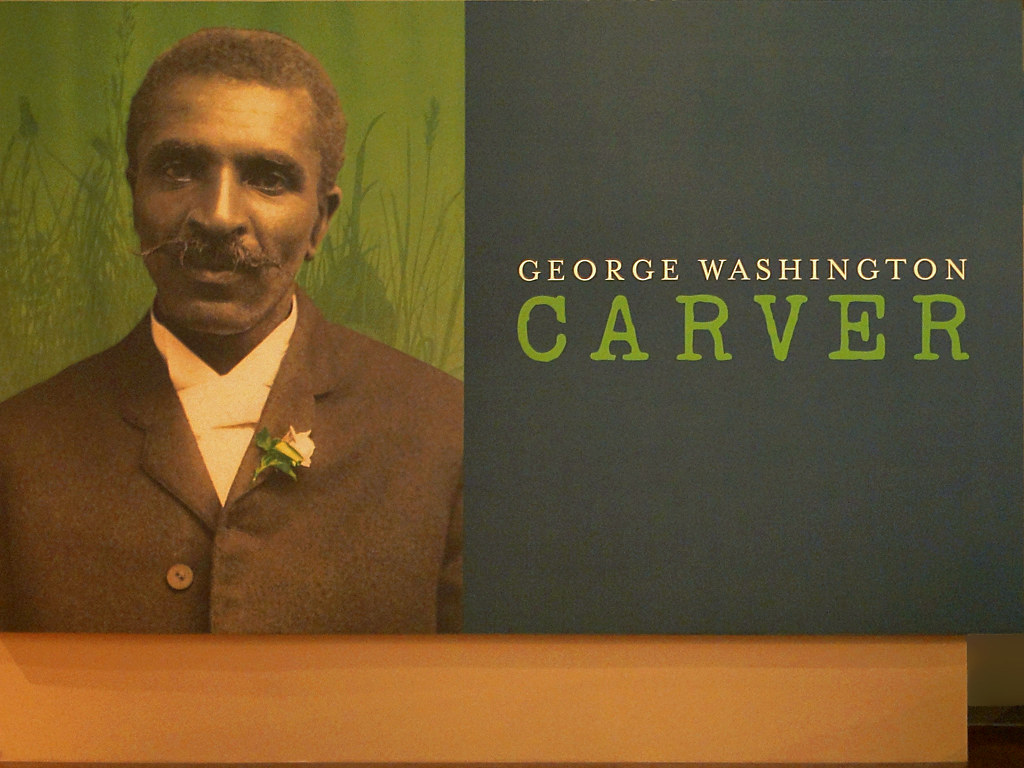Carver devised methods to improve soils depleted by repeated cotton plantings. He urged farmers and other agricultural experts to restore nitrogen to their grounds through systematic crop rotation, such as alternating cotton crops with plantings of sweet potatoes or legumes (such as peanuts, soybeans, and cowpeas). These crops both restored nitrogen to the soil and were safe to eat.

Following the crop, rotation practice resulted in higher cotton yields and provided farmers with additional cash crops. Carver created an agricultural extension program for Alabama similar to his alma mater, Iowa State, to train farmers to rotate and cultivate the new crops. To promote better nutrition in the South, he widely disseminated recipes that used alternative crops.
Carver received the Roosevelt Medal in 1939 for saving Southern agriculture, which later played a role in feeding the United States during the Second World War. It was also why Carver’s hometown was declared a historic site after his death on January 5, 1943. These innovative new farming methods were groundbreaking. They had such a lasting impact on the world of agriculture that Theodore Roosevelt later named January 5 Carver Day in honor of the man himself.

The beginning of Carver Day has become a day to celebrate the incredible agricultural inventions of Carver. It has also become an important day as it is one of the few national days that honor an African American figure — and a scientist at that.
According to nationaltoday.com. Source of photos: internet








